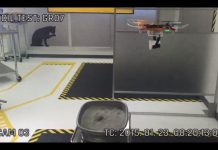Education and learn concept: pixelated words knowledge is powerIn today’s world of technology driven transformational change, it’s important to understand that: “If you received a PhD ten years ago, it only means you used to know a lot.”
It’s not just what you learned, but more importantly that you learned how to learn and keep learning because things change so rapidly, and knowledge, even the most specialized kind, can get out-of-date very quickly. Given the accelerating pace of change, one has to ask; does investing time and money in education still have the same payoff it once did? Does the particular expertise you acquire remain relevant and put you at an advantage in the real world? Or have you lost a step and several years on your way to attaining an impractical degree? I don’t intend to diminish anyone’s education, but these are questions worth considering.
I want to make a distinction between degrees and education. There have been recent news articles that suggest that degrees may not be as important as they used to be. Rather than debate the degree issue, I would rather focus our attention on the fact that education itself — the ongoing process of discovery — is absolutely essential. Becoming an expert in a field of study is, and will continue to be important only if you keep learning. Therefore becoming an expert at learning is invaluable.
What we need now is not “knowledge” in the sense of some static commodity that you can go out and acquire once and store up in a vault for later use. Instead, we need a perpetual state of learning, of taking in all the new information that’s coming our way, and using it to increase our understanding which allows us to drive innovation.
In other words, the most valuable kind of learning you can do is to learn how to adapt and innovate; not to memorize, but to contribute; not to consume, but to create. It’s likely that as we go forward, traditional degree programs will refocus themselves, and perhaps emerge as something else entirely.
What if there were a degree that didn’t so much attest to specialized knowledge in one subject, but instead certified that its holders are a master at learning and know how to extract insights to solve problems and innovate? How can higher education inculcate the skills of flexibility, adaptability, and foresightedness that are so eminently needed today?
We need to think of education, in other words, not as a stage in life, but as a kind of third rail: running alongside all our endeavors, powering our efforts every step of the way.
The future of education will be driven to a large extent by mobile technology, so learning will certainly be digital but it’s no longer limited to a “digital classroom” as we define it today. Instead, it’s both contained and uncontained: it can exist anywhere there are curious people who are networked and eager to learn and contribute. It’s a two-way street that enhances collaboration and enables both real and virtual lectures by the worlds best as well as two-way conversations. It’s omnivorous: it doesn’t limit itself to a course syllabus; it modulates the lessons to suit the demands of the day.
We will continue to have schools and universities where humans gather and learn, and we will increasingly have students studying with interactive mobile apps on their smartphones like Duolingo, which is an app that rapidly teaches foreign languages. They’ll be sharpening their smarts with game-based virtual realities in Massive Multiplayer Online Games (MMOGs) like the “Open Orchestra” game that McGill University now uses to teach music.
The “Open Orchestra” game is a virtual simulation that gives music students the experience of playing with a full orchestra by using high-definition cameras and advanced sound equipment. No classroom required, no teacher required, no other students required, just the impulse to learn and the tech to help you.
In our rapidly transforming world, learning is still paramount but the old trappings of education perhaps matter less. The notion of the school is getting unraveled, expanded, rebooted, and integrated much more with real endeavors in the real world. And we all have a lot to learn.















